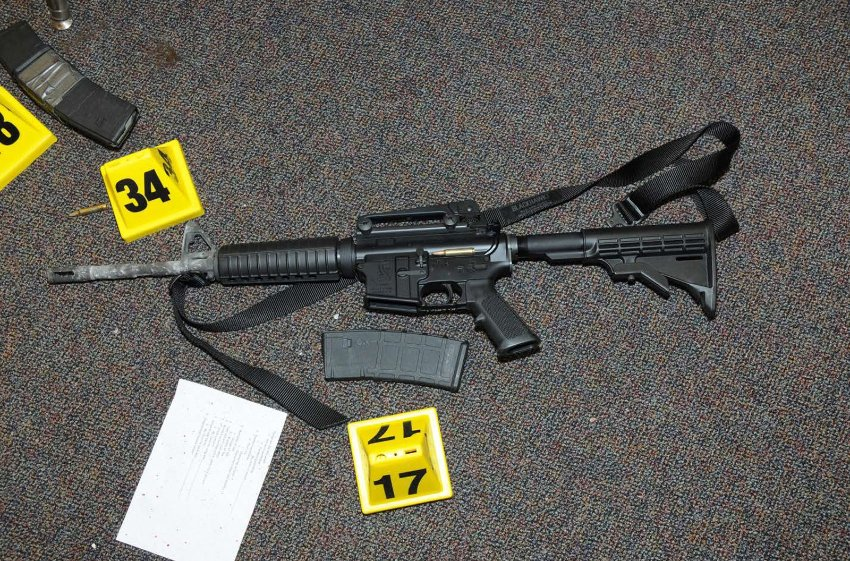
This AR-15 was found in classroom 10 after the shooting. Photo: Newtown Police [Public domain], via Wikimedia Commons.
The Connecticut Supreme Court ruled on March 14 that families of the Sandy Hook Elementary mass shooting victims could proceed with a lawsuit against the companies that manufactured and sold the semiautomatic rifle used in the attack.
The ruling, which reversed a lower court’s decision, has the potential to unleash a flood of claims by gun violence victims against gun manufacturers – if it’s upheld by the U.S. Supreme Court, that is.
My research on the history of lawsuits against the gun industry has documented the failure of gun violence victims to hold gun manufacturers liable for legal marketing practices that many people consider irresponsible. The latest Sandy Hook decision could pave the way for gunmakers to finally be held responsible for them.
Interpreting ‘applicable’
A 2006 law called the Protection of Lawful Commerce in Arms Act grants gun manufacturers immunity from lawsuits that arise out of the criminal misuse of a weapon.
The Sandy Hook families argued that their lawsuit fell under an exception to this federal immunity. The exception allows gun violence victims to sue a manufacturer who “knowingly violated a state or federal statute applicable to the sale or marketing” of a firearm.
The families claimed that Remington Arms “marketed, advertised and promoted the Bushmaster XM15-E2S for civilians to use to carry out offensive, military style combat missions against their perceived enemies.” They said that this marketing constituted an unfair trade practice under Connecticut law, which they argued is a state statute “applicable” to the marketing of a firearm.
The Connecticut high court agreed and, importantly, interpreted the term “applicable” broadly. That is, the court said that a relevant statute only had to be “capable of being applied” to gun sales, not that the law needed be specifically about firearms, as other courts had held.
What’s next
It is this interpretation that could potentially unleash a flood of lawsuits across the country.
Since many states have unfair trade practices laws like Connecticut’s, it seems likely that gun violence victims will bring similar claims elsewhere. Victims are thus likely to allege that a gun manufacturer’s aggressive marketing of combat-style weapons violates a state statute – like an unfair trade practice law – that is applicable to the sale or marketing of a firearm.
The fate of the Sandy Hook lawsuit and any others that follow will depend on the outcome of an all-but-certain appeal to the U.S. Supreme Court. If the court rejects the Connecticut Supreme Court’s broad interpretation of the word “applicable” in the federal statue, that will restore the immunity from suit that gun makers have enjoyed for more than a decade.
However, if the top U.S. court adopts Connecticut’s broad interpretation, then the gun industry can expect to be the target of a great deal more litigation in the years to come.![]()
Timothy D. Lytton, Distinguished University Professor & Professor of Law, Georgia State University
This article is republished from The Conversation under a Creative Commons license.
